When Wayne Wang's feature The Princess Of Nebraska streamed for free on YouTube in mid-October, it was not a leak, it was the official digital release - and world premiere - of the film.
The YouTube experiment, which attracted 220,000 views in the US (access from elsewhere was blocked), was one of a growing number of innovative releases negotiated by Cinetic Rights Management (CRM), the new sister company to New York-based indie film sales and financing powerhouse Cinetic Media.
'The film made a lot of noise, much more than it would have as a DVD release or playing on one screen in New York,' says CRM head of programming and marketing Matt Dentler.
Magnolia Pictures had acquired the film, a drama about a Chinese exchange student in the US Midwest, as a package with Wang's A Thousand Years Of Good Prayers (which was launched theatrically), and the distributor worked with CRM to bring Nebraska (which will be sold more traditionally to TV and on DVD) to YouTube.
'We looked at a few other portals, but we thought it made the most sense to put it up on YouTube, which had the best deal in terms of financials and also PR and marketing,' Dentler explains. 'We wanted the most amount of casual consumers to see the film.' Nebraska was promoted in YouTube's Screening Room section and also on the video-sharing site's front page.
It is the kind of innovation that Cinetic's John Sloss, Robert Nathan and COO Janet Brown had in mind when they launched CRM in 2007. The operation handles sales strategy and negotiations, digital encoding of content, marketing of online content and accounting/reporting.
Catching the long tail
'We see 1,200 films a year and we choose to work with only 50 of them,' explains Sloss of the traditional Cinetic Media model. 'In a digital future where storage and digital delivery are cheap, there's a long-tail value for a lot more of these films. It made sense for us to be the steward for those films in the digital space.'
In most cases, CRM is not acquiring digital rights but acting more like a traditional sales agent in brokering deals between film-makers and distribution platforms.
'We're like the traffic cops between the film-makers and the portals. There's a different mentality to owning (rights) and Cinetic has always been more about facilitating, not owning,' says Sloss, who established the New York-based Sloss Law Office in 1993 and Cinetic Media in 2001.
The CRM financial structure is 'all based on revenue share', Dentler notes. The company's deals are separate from Cinetic Media's traditional deals, but there is synergy if CRM can offer an attractive digital deal. 'Ultimately the film-maker decides,' Dentler says.
CRM represents about 250 titles now, with the plan being to add 'a few hundred' per year and to concentrate on promoting 10-20 key titles per month with partners. The collection ranges from older films such as Hoop Dreams and Slacker to new titles including We Are Wizards and One Day Like Rain.
CRM has deals in place with partners including Amazon, SnagFilms, Hulu, Joost, Jaman, Babelgum, Dailymotion and YouTube. Other partners are to be announced soon and VoD deals are coming in the near future.
CRM started discussions with film-makers at this year's Sundance festival, but began its forward push in May with the hiring of popular South By Southwest (Sxsw) film festival producer Dentler.
Sloss says Dentler was the natural choice for the job: 'I've always respected his intelligence and he's very plugged in.'
Coming from tech-friendly Austin (he is now based in New York), Dentler is an active blogger who has long been interested in the way digital technology is impacting the music and film worlds.
Dentler himself says the move from festivals to industry was a natural progression. '[Cinetic] needed someone who could look at this mass of content, old and new films, and contextualise them. That's where my programming experience was a good fit,' he says. 'This is not a company that just slaps up a film online and forgets about it. As people familiar with me and Sxsw know, I like to be a real champion and booster for indie films, and they wanted a promoter too.'
Focus on the US
While a lot of the buzz about mobile technology may come from Asia and Europe, Dentler believes the US is the most exciting online space for films. 'The goal right now is to stick with the American market, it's such a fast-growing area,' he says. 'For distribution of feature films online, the US is one of the few places in the world where we have systems actually developing.'
Educating film-makers about the incentives for digital distribution is part of the process. 'Traditional theatrical distribution can have higher reward but also much higher risk,' Dentler says of the toughening theatrical model. 'In the theatrical landscape, it's much harder to find that reward. An indie film-maker could try to put out their own film with a service deal but that's such a huge investment that doesn't always pay off.
You have to ask, 'Is theatrical the smarter way to go if you don't have a studio or large company behind you'''
Online marketing and publicity is key. 'It's about working the blogosphere and social networking sites to maximise the proximity and immediacy of an online release,' Dentler says.
One recent push was for the Amazon VoD release of New Yorker Films' The Times Of Harvey Milk, a 1984 documentary about the gay politician whose life is dramatised in recent theatrical release Milk.
Dentler is enjoying the challenges of a new job in a changing part of the industry. 'With the festival it was about getting a film exposure, and now it's about making films money. It's been both rejuvenating and daunting,' he says. 'I've spent 10 years defending films and saying how they deserve an audience. And now I'm putting my money where my mouth is.'

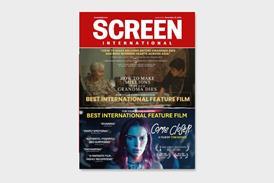


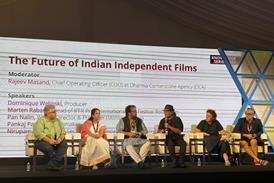
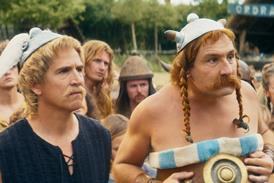

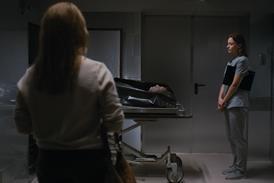







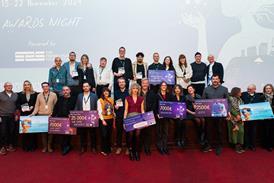





No comments yet